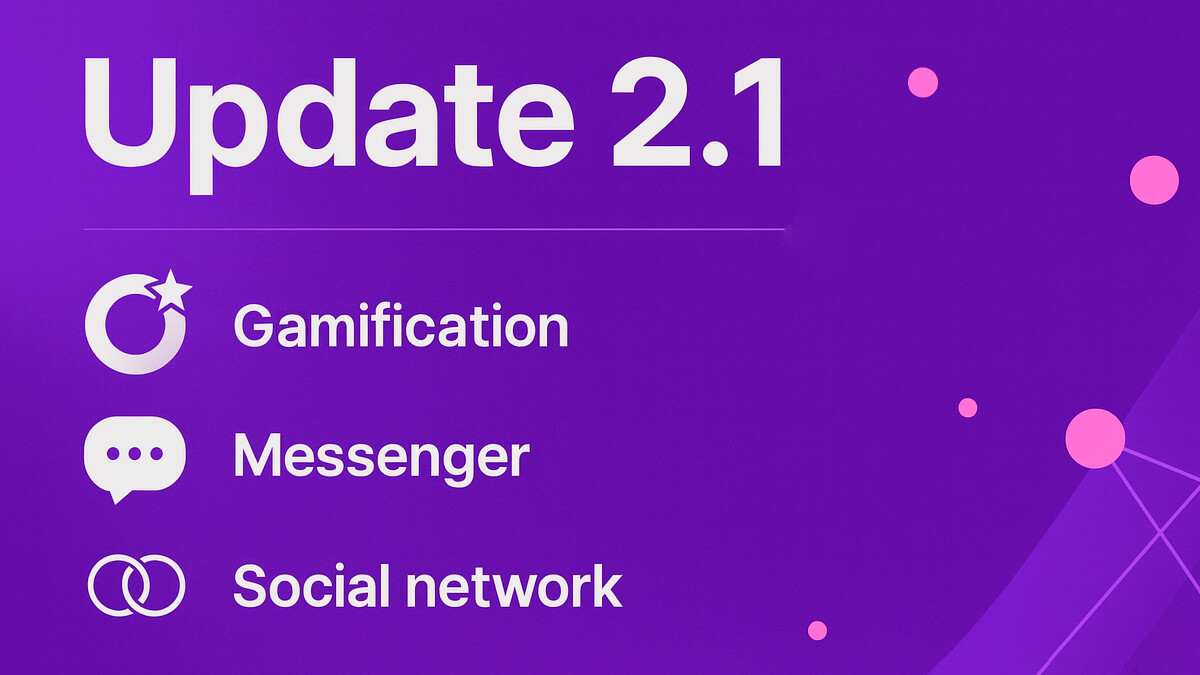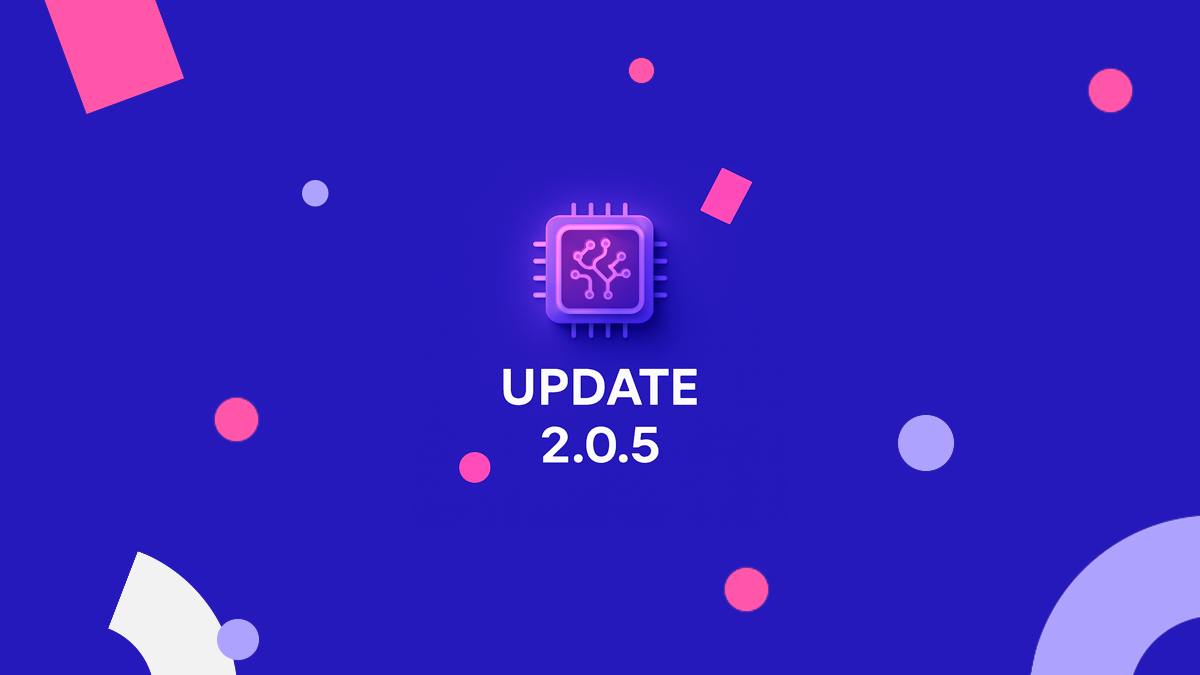How to choose an LMS platform

Online learning stopped being just a trend a long time ago — today it is a necessity for businesses, schools, universities and even individual experts launching their own courses. The more people and companies aim to organize a high-quality online learning process, the more often they face the question: which LMS platform is right for me?
LMS (Learning Management System) is the heart of any distance learning. A well-chosen learning management system not only helps create and distribute materials but also track student progress, motivate learners and increase the overall effectiveness of the educational process. In this article we will explore what an LMS is, what tasks it solves and what to consider when choosing one.
What is an LMS platform
An LMS platform is a learning management system that allows you to organize the educational process in a digital format. Simply put, an LMS is a tool that combines a “classroom,” a “gradebook” and a “teacher’s guide” in one place, but online.
The abbreviation “LMS” stands for Learning Management System, which in Ukrainian means “система управління навчанням.” Its main purpose is to make learning structured, accessible and measurable.
Depending on the needs, an LMS can be used:
- in schools and universities to organize distance classes
- in companies to train employees and improve qualifications
- in business to create corporate academies
- for online courses and educational startups
In fact, an LMS is a digital space where teacher and student meet. It allows you to upload learning materials (videos, tests, presentations), build learning paths, monitor performance and even motivate participants through gamification.
Main features of an LMS
A modern LMS platform is not just a “storage” for learning materials but a complete tool that helps build an effective and flexible educational process. In general, its features can be divided into several key areas.
1. Learning materials management
An instructor or administrator can upload videos, articles, presentations, tests or interactive assignments. All of this is stored in one place, accessible to students at any time.
2. Learning process organization
An LMS makes it possible to create courses with different modules and lessons, build learning programs, set the sequence of completion and even configure access to new topics only after previous ones are finished. This makes learning more structured.
3. Tracking progress and results
One of the most valuable functions of an LMS is analytics. The platform collects data on attendance, assignment completion and test results. The instructor sees the big picture, while the student can evaluate their own progress.
4. Communication and interaction
Many learning management systems include forums, chats or feedback tools. This helps maintain live communication even in a distance format.
5. Automation
An LMS handles routine tasks: deadline reminders, test grading, issuing certificates after course completion. This saves time for instructors and administrators.
6. Participant motivation
Gamification, rankings, badges and other motivational elements help maintain student interest and make learning more engaging.
All these features make LMS platforms indispensable both for large educational projects and for small teams or companies that want to develop their employees.

Types of LMS
LMS platforms differ not only in design or convenience but also in structure, feature set and implementation method. To make the right choice, it is important to understand what types of LMS exist and what they are suitable for.
By deployment method
- Cloud-based LMS. These solutions work online — all you need is a browser and internet access. All data is stored on the provider’s servers. The user pays for a subscription and gets a ready-to-use product without complex technical setup. This format is convenient for businesses, startups and educational projects that scale quickly.
- On-premise LMS. Installed on the company’s own servers. This requires technical support and additional resources but gives full control over data. This option is often chosen by large organizations with high security requirements.
By purpose
- LMS for schools and universities. Allow organizing distance lessons, storing schedules, grades, homework. They are focused on integration with the traditional educational process.
- LMS for business. Used to train employees, conduct trainings, certifications. Help quickly onboard new hires and improve team qualifications.
- LMS for online courses. Most often used by experts, continuing education schools or EdTech projects that create and sell courses. The focus here is on flexibility, marketing tools and student convenience.
By access openness
- Open Source. The user can freely download the system, modify its code and customize it for their own needs. This is flexible but requires technical knowledge.
- Commercial. Ready-made solutions with support, updates and an intuitive interface. Ideal for those who do not want to dive into complex configurations.
By scale of use
- LMS for small groups or individual authors — easy to use, with basic features, designed for individual instructors or small schools.
- Enterprise-level LMS — powerful systems with analytics, integrations with HRM or CRM and extensive customization options.
Thus, when answering the question “what is an LMS and what types are there?”, we can say: these are tools with different levels of complexity and purposes. The choice depends on whether you are an instructor launching your own course or a company training hundreds of employees.
How to choose an LMS
Once you understand what an LMS is and what types exist, the main question arises: how do you choose the system that fits your needs? There are dozens of platforms for online courses, business or schools on the market, each with its own strengths. To avoid confusion, it is worth relying on clear criteria.
1. Define your goals and tasks
The first step is to understand why you need an LMS.
- If you are an instructor planning to sell online courses, look at how easy it is to upload materials, accept payments and provide a smooth experience for students.
- If you are a company launching internal training, you need flexible analytics tools, certification and integration with HR systems.
- If you are a school or university, calendars, gradebooks and the ability to conduct distance lessons should be a priority.
2. Evaluate functionality
Pay attention to key features:
- course and module creation
- tools for testing and knowledge checks
- analytics and reporting
- mobile device support
- communication tools (chats, forums, comments)
It is important that the platform offers not only basic but also additional features that make learning interactive and convenient.
3. Ease of use
An LMS should be intuitive for all users — both instructors and students. If the system is overloaded with unnecessary buttons or complicated settings, it will quickly demotivate people. Test the demo version and check how easy it is to create a course or complete a lesson.
4. Flexibility and scalability
Even if you start with a small group, the number of students or employees may grow over time. Choose a system that can easily scale: from 10 users to 1000 or more.
5. Integrations
A good LMS should “play well” with other services — CRM, email platforms, payment systems. This simplifies workflows and saves time.
6. Data security
This is especially important for companies and educational institutions. Make sure the chosen LMS meets modern security standards and offers regular updates.

7. Cost and terms of use
There are free LMSs with basic features, but they are often limited. Paid solutions usually include technical support, regular updates and broader functionality. It is important to calculate your budget and decide what is more profitable: a subscription or a license purchase.
8. Technical support
Learning is a process where everything must work smoothly. If problems arise, it is essential to have access to fast and professional support.
Thus, to answer the question “how to choose an LMS,” you should start with your goals and tasks, then compare platform features against this list of criteria. There is no perfect universal LMS: for some, integrations are critical, for others design and simplicity, and some prioritize powerful analytics. But if you approach the choice systematically, you will be able to find a solution that makes learning as effective and enjoyable as possible.
Advantages of Softbook LMS
Softbook LMS is a universal platform that allows you to fully automate the learning process: from the moment a student buys a course to certificate issuance. What exactly makes it special?
One account – multiple schools, multiple roles
The owner can manage several online schools within one account. If you have a number of courses or branch schools, all management is conveniently centralized. Students can use one account to study in different schools, join courses from various divisions and avoid separate logins.
Cloud storage + expansion option
Each account comes with 5 GB of free storage in Softbook Cloud for videos, audio, presentations and images. This is convenient when materials are used in different courses and need to be accessed across lessons. If more space is needed, it can always be purchased.
Unlimited students and scalability
Softbook LMS has no student limits: even large online schools, training companies or corporate academies can operate without worrying that the platform will “freeze” due to user caps. Everything is scalable and convenient.
Intuitive course builder
The course editor in Softbook guides the user step by step: first the course name and description, access settings (time or date restrictions), then content upload (videos, audio, documents), followed by homework and tests. This is convenient even if you have never created a course before.
Support for live format and schedules
If you run live lectures or webinars, there is Zoom integration, the ability to create events and link them to schedules. Students can see when a live session or broadcast is happening, helping them plan their time and avoid missing important lessons.
Certificate builder with branding
Softbook LMS lets you design custom certificates: add a logo, adjust the design, configure which student data is automatically included (name, completion date, course title). This ensures graduates receive a polished document for their portfolio or to confirm their competencies.
Integrations with payments, email services and other tools
The platform allows you to connect payment systems to accept course fees or subscriptions. It also supports integration with email marketing services to automate notifications: registration, payments, deadlines, new materials. This reduces manual work and improves student engagement.
Learning process automation
Softbook LMS automatically registers students after payment, sends welcome emails, notifies about homework checks in Telegram, tracks progress and issues certificates – all without constant instructor or administrator involvement. This significantly reduces administrative workload.
Content protection
If you create video or audio lessons, it is important that dishonest users cannot easily download or copy your materials. Softbook LMS offers video protection against downloading. In addition, session restrictions (so one account is not shared) and other security measures ensure intellectual property safety.
Built-in CRM and analytics
The system includes a CRM module that allows you to build funnels, manage leads, track communication and payment history, store user contacts. This helps school owners and managers see what works in marketing or sales and what should be improved. Student performance, course progress and interactions are also available through dashboards.
Platform support and development
Softbook team actively works on updates: adding new integrations, tools, improving the interface. There is a support service that responds quickly and helps resolve user issues — an important factor, especially if you are running a school or business where reliability affects reputation.
—
LMS platforms have long become a key tool in online learning, business training and corporate development. They make it possible to create structured courses, track student progress, automate routine processes and make education accessible anytime and anywhere. The choice of a learning management system directly depends on your goals: some value flexible analytics, others prioritize ease of use, while others focus on scalability and integrations.
To find the best solution, you should define your key tasks, evaluate functionality, test interface usability and review the terms of use. And remember: an LMS should not only be a technical tool but also a partner in the development of your educational or business project.
Softbook LMS is an example of a platform that combines simplicity, powerful functionality and flexibility for different learning formats. This solution suits both individual course authors and companies or schools that aim to effectively develop their students and employees.
Articles are good, but social media posts are faster!
Subscribe to us and be the first to receive tips and tricks
on promoting your online school!


Earn money on your knowledge and experience with
Softbook!
to the platform for setting up your own school!





